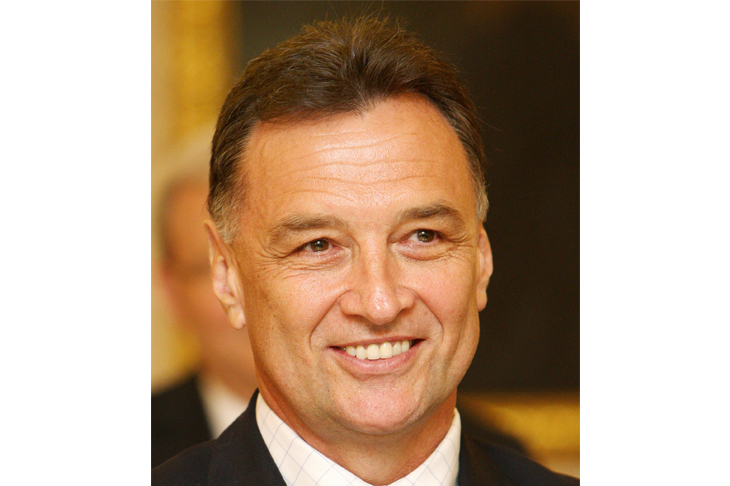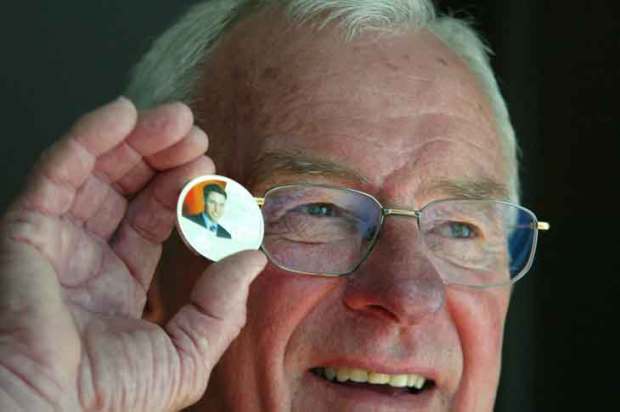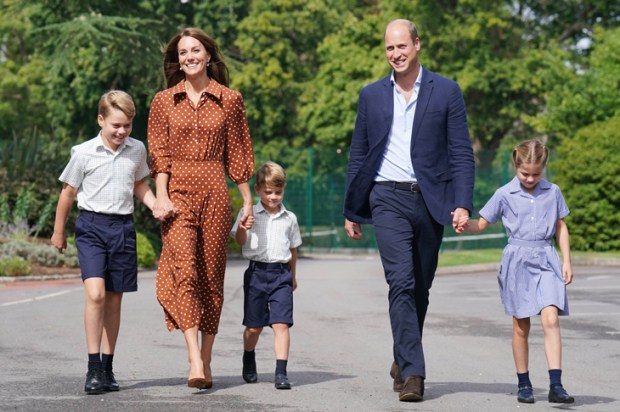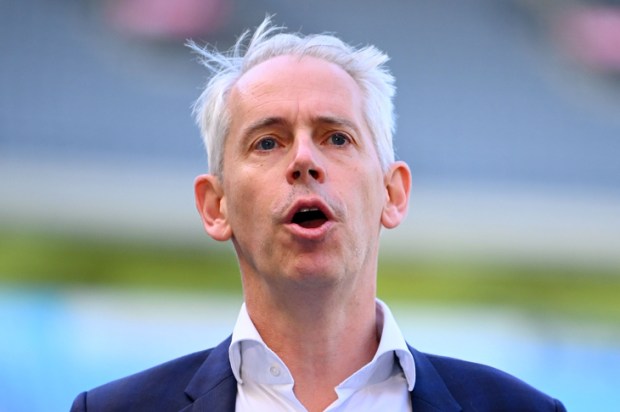The question Labor grandees Craig Emerson and Jay Weatherill should have asked in their review of the ALP’s loss in the federal election is: ‘Why has the ALP turned its back on its great leaders?’
This, coincidentally, was the question Tony Abbott answered in a videoed interview for the 20th anniversary of the referendum when modern Labor failed to persuade Labor voters to support their politicians’ republic. Labor’s great leaders, from Fisher through Curtin to Chifley and Evatt, all constitutional monarchists, would have agreed with the voters.
Labor has moved from being a party for the workers to a party for the bourgeois inner-city elites. As Kim Beazley Senior famously said, when he joined the party it contained the ‘cream of the working class’.
‘But as I look about me now,’ he told a shocked party conference, ‘all I see are the dregs of the middle class.’
(I well remember writing about the impossibility of representing conflicting constituencies in a chapter in Peter van Onselen’s 2008 book, Liberals & Power; a book fatally damaged by revelations that a chapter by Julie Bishop was actually written by a staffer. Worse, it contained vast chunks from another person’s speech without attribution.)
The rot began under Whitlam, set in under Hawke and accelerated under Keating. A great thespian, the first Labor leader to be wealthy beyond the dreams of most Labor voters, Hawke seriously damaged Australia’s future by blocking both new dams and new uranium mines, thus ending Curtin’s dream of a nuclear Australia. By following the politicians’ naive endorsement of free trade policy, he continued the transfer offshore of manufacturing begun by Whitlam. The victims were not the rich; they were Labor’s core constituency
What Labor needs is not inner-city elite politicians posing as blue-collar workers pushing their bundles of irrelevant and too-often damaging policies. Rather, they need to follow, meticulously, Donald Trump’s pro-worker agenda, beginning with quitting the Paris Agreement.
Reports of the Labor review have been accompanied by the observation that this was the result ‘nobody predicted’. This ignores the inconvenient truth that Alan Jones, this journal and others went against the grain and repeatedly predicted the result. It was self-evident that the well-informed rank-and-file would never trust either Shorten or a Shorten government. With Turnbull gone, a Coalition win was on the cards for three reasons.
First, it is obvious that the rank-and-file suspect that both mainstream media and pollsters have little respect for them, and that they are agenda-driven. So increasingly, they either won’t have anything to do with pollsters or they retaliate by misleading them.
Second, they are losing confidence in the major parties. And traditional Labor voters were asking why their party was more interested in the fads and fashions, often deranged, of inner-city elites rather than the real issues.
Small parties were the beneficiaries. But how to allocate their preferences?
Most pollsters assumed voters would allocate preferences as they did in the 2016 election. A drover’s dog would tell anyone listening that 2019 was wildly different; Labor was targeting the aspirational and had they won they would be, as this column warned, ‘a government of thieves, thugs and constitutional vandals’.
At the same time, the Coalition without Turnbull at least seemed, I stress ‘seemed’, to be more conservative.
And then Morrison had the extraordinary good luck not to have Pauline Hanson retaliate against his unbelievable decision to preference Labor before One Nation. So the Coalition was obviously going to receive more preferences than in 2016.
The third reason for Labor’s defeat was that voters, being human, would be guided by self-interest in assessing Labor’s polices against their own aspirations both in casting their primary votes and allocating their preferences.
It is more than surprising that Labor’s review doesn’t think this was a factor. The number of voters who would have been adversely affected by Labor’s planned theft of the refunds of taxes on franked dividends and negative gearing changes was more than enough to have a significant impact in over thirty key seats.
I set out two tables to demonstrate this, pointing out that if you added their families to the voters directly affected, there would be more than enough to keep the Coalition in office.
The report misses this entirely.
Instead, it has predictable recommendations about such irrelevant inner-city matters as more women, greater gender diversity, legislation capping individual political donations and for truth in political advertising.
The report should have said that a party which purports to be for the workers should be precisely that.
But few Labor politicians today have anything in common with blue-collar workers. It is said the last blue-collar worker to carry the Labor name in Canberra was actually a Democratic Labor senator. Instead, the party is more concerned with the non-existent LBQXYZ community, an Aboriginal elite who hanker after a place in a third chamber while ignoring the real problems of remote Australia and the agenda of the wealthy inner-city elites many of whom are over-generously funded by the taxpayer either by direct employment or who are rolling in the many successful contractors’ rivers of gold.
The danger for Australia is that it doesn’t take much to throw out a good or even mediocre government and replace it with a disaster. In a confession tucked away in a corner of the Australian’s media section, the retiring editor Chris Mitchell confessed that his biggest mistake was to persuade Rupert Murdoch to support Kevin Rudd in the 2007 election. It wasn’t only in the election, there was also the long campaign to undermine the Howard government. Remember, too, what a coalition between the treacherous and the commentariat did to Tony Abbott.
We need fundamental change to ensure politicians are controlled after elections, as they are in Switzerland. What a pity Alfred Deakin stopped that from even being discussed and thus possibly included in our constitution. We should be fighting now for that reform.
Got something to add? Join the discussion and comment below.
Get 10 issues for just $10
Subscribe to The Spectator Australia today for the next 10 magazine issues, plus full online access, for just $10.
You might disagree with half of it, but you’ll enjoy reading all of it. Try your first month for free, then just $2 a week for the remainder of your first year.














Comments
Don't miss out
Join the conversation with other Spectator Australia readers. Subscribe to leave a comment.
SUBSCRIBEAlready a subscriber? Log in